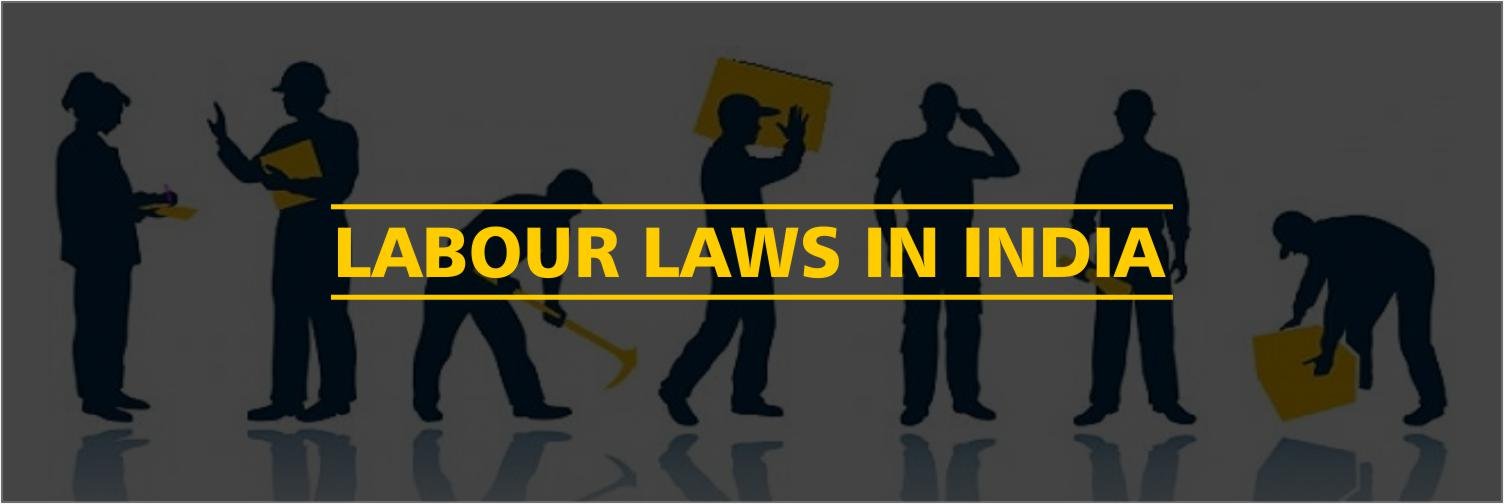With the advent of everyday e-commerce applications such as Zomato, Swiggy etc., the ‘gig economy’ has become an integral part of the Indian economic system.
In 2020-21, 77 lakh (7.7 million) workers were engaged in the gig economy. Further, the gig workforce is expected to expand to 2.35 crore (23.5 million) workers by 2029-30. At present about 47% of the gig work is in medium-skilled jobs, about 22% in high-skilled skilled, and about 31% in low-skilled jobs. [1] Such a boom in the gig economy indicates the much-awaited economic revolution in the country. Furthermore, as the world’s fifth-largest gig economy, India has surpassed the US, China, Brazil, and Japan. India supplies over 40% of the freelance labour available worldwide, with 15 million skilled workers. [2]
Chapter I, Section 2(35) of the Code on Social Security, 2020 defines Gig workers as “those engaged in livelihoods outside the traditional employer-employee arrangement – can be broadly classified into platform and non-platform-based workers.” Platform workers are those whose work is based on online software apps or digital platforms. Examples may include Swiggy or Amazon’s delivery guys. On the other hand, Non-platform gig workers are generally casual wage workers which may include domestic help etc.
However, despite the sector’s substantial contribution to the economy, no legislation is in force to provide social security benefits and protection to such workers. Consequently, a new set of problems has seeped into the already burdened Indian economy which makes the workers vulnerable to exploitation. This set of problems comprises ambiguity about the categorization of such workers; no social security benefits such as minimum wage, unions, schemes etc., no job security etc. [3]
Therefore, the article aims to explore the applicability of present statutes to resolve the aforementioned issues and attempts to present before the readers the ongoing developments in this respect.
JUDICIAL INTERVENTION
The Indian Federation Of App Based Transport Workers (IFAT) v. UOI
[4]
The Indian Federation of App-based Transport Workers (IFAT) filed a public interest litigation in 2021. They prayed for the inclusion of gig workers under the purview of Sections 2(m) and 2(n) of the Unorganised Workers’ Social Security Act, 2008 (UWSS Act) along with their registration in the E-SHRAM portal.
Their contention was premised on the following grounds:
- Since the companies had significant control over the execution of their work, an employer-employee relationship can be made out. Therefore, such an exclusion of gig workers is violative of Article 14 for they are being discriminated against vis a vis similarly placed workers.
- The companies or service aggregators exert their dominance on such workers. The workers do not have the same negotiating power as that of their ‘employer’ and they concede to the lopsided terms of such companies. Hence, it is violative of Article 23 as it amounts to forced labour.
- Since gig workers are not classified as ‘workers’, they are unable to claim their right to work in decent conditions which forms an integral part of their right to life.
The Supreme Court sought the Centre’s reply in December 2021. However, to date, there has been no progress on the case.
CURRENT DEVELOPMENTS
THE CODE ON SOCIAL SECURITY, 2020
The Central Government’s 2020 proposal, the Code on Social Security, was perceived as an attempt to provide gig and platform workers with social security benefits. All prior laws pertaining to unorganized labour, including the Payment of Gratuity Act of 1972, the Maternity Benefit Act of 1961, the Employees’ Compensation Act of 1923, and the UWSSA, have been combined into the Code. It covers topics including health and maternity benefits, accident insurance, life and disability insurance, old age protection, etc. In addition, the state government has been given the authority to create regulations concerning provident funds, workplace injury benefits, housing, child education programs, worker skill enhancement, funeral assistance, and assisted living facilities. [5]
A National Social Security Board has been created in accordance with S.114(6) of the legislation to provide protection to platform and gig workers. Furthermore, a clause is included about the Social Security Fund, which will be financed by the aggregator’s contribution, which will range from 1% to 2% of the aggregator’s yearly sales, up to a maximum of 5% of the total amount that the aggregator pays or is required to pay to these workers. [6]
Moreover, the code mandates the registration of gig workers to extend them the aforementioned benefits. To get registered the worker should complete sixteen years of age but has not attained the age of sixty years; the worker shall have a work experience of not less than ninety days during the preceding twelve years; the worker must submit a self-declaration electronically or otherwise in a specific format and manner containing all the relevant information as prescribed by the Central Government etc. [7]
However, the rules are yet to be formed by the respective state governments and hence, the implementation of this welfare legislation is still a vision far from reality.
RULES AND REGULATIONS
In 2020, the Union Government released the updated Motor Vehicle Aggregator Guidelines. The guidelines stipulate that gig workers are eligible for health insurance worth Rs 10 lakh, with annual increases of 5%, and term insurance worth Rs 15 lakh. Additionally, the requirements specify that no driver, even those integrated with aggregators, should be logged in for longer than 12 hours in a calendar day. For workers who were logged in for 12 hours, a 10-hour break was required. Algorithmic openness, commission and incentive rate disclosure, and other driver-imposed fees are also recommended. [8] However, these guidelines are non-binding recommendations and the implementation is left at the mercy of the state governments who lack the will and the vigour for the same.
Karnataka gig worker scheme was introduced in 2023 and includes an extra Rs 2 lakh accidental insurance coverage in addition to a Rs 2 lakh life insurance cover. Additionally, rules for taxi service aggregators that use apps and websites were created by the Maharashtra government in April 2023. The West Bengal 2022 notification of laws controlling “On-Demand Transportation Technologies Aggregators” (ODTTA) mostly adhered to the Union Government Guidelines. Telangana’s state government has been asked to consider implementing the Union Government Guidelines in October 2022 by the Telangana Gig and Platform Workers Union. Kerala and Tamil Nadu have witnessed a number of strikes against the terms of employment for gig workers. [9]
This means that there is a lack of uniformity in state-wise provisions for gig-workers and the grey area of the gig economy still plagues the country.
But in 2023, Rajasthan became the first state in India to introduce a bill specifically addressing the welfare of gig workers. Under the Rajasthan Platform Based Gig Workers (Registration and Welfare) Act 2023, social security funds will be funded by state government subsidies in addition to a welfare tax of 1%–2% on each transaction a client makes on an app.
INTERNATIONAL POSITION
The UK Supreme Court in 2021, classified Uber drivers as ‘workers’ under the UK Employment Rights Act 1996 for the platform acted as an intermediary and exercised substantial control. Consequently, the workers were given benefits such as minimum wages under the act. [10]
The Dutch High Court, on similar lines, held that the contract between the driver and Uber amounted to an employment contract and hence, the workers were entitled to protection under the labour laws. [11]
Moreover, in August 2021, the Superior Court of California struck down a ‘2020 ballot measure’ known as ‘Proposition 22’ that excluded gig workers from labour laws by declaring them ‘independent contractors’ and hence, granted social security benefits to such workers. [12] Further, in Germany, the Temporary Employment Act is in place which provides for equal pay and equal treatment of gig workers.
CONCLUSION
In conclusion, despite the absence of particular laws for gig workers in India, recent court rulings, the 2020 labour code, and global viewpoints have all helped to advance the rights of this workforce. The positive trajectory is indicated by the progressive posture, which is especially obvious in the Labor Code. Effective implementation is still necessary, though. India has a unique chance to create a well-balanced legal framework that protects the rights of gig workers and encourages innovation as the gig economy expands globally. If it does so, it will lead by example.
_________________________________________________________________________________________________________
[1] Policy_Brief_India%27s_Booming_Gig_and_Platform_Economy_27062022.pdf
[2] https://www.khuranaandkhurana.com/2023/03/02/laws-governing-gig-economy-in-india/
[3] https://www.niti.gov.in/sites/default/files/2022-06/23
[4] WP (C) 1068/2021.
[5] Code on Social Security 2020, S.109.
[6] Code on Social Security 2020, S.141.
[7] Code on Social Security 2020, S.113.
[8] https://timesofindia.indiatimes.com/blogs/niveditas-musings-on-tech-policy/gig-workers-rights-a-us-india-comparative-based-on-recent-developments/
[9] Id, at 8.
[10] Uber BV v Aslam [2021] UKSC 5.
[11] https://www.reuters.com/world/europe/dutch-court-rules-uber-drivers-are-employees-not-contractors-newspaper-2021-09-13/
[12] Castellanos v. State of California (2023) 89 Cal.App.5th 131.
_________________________________________________________________________________________________________
This article is written and submitted by Vani Singh during her course of internship at B&B Associates LLP. Vani is a 2nd year BA. LL.B (hons) student at Damodaram Sanjivayya National Law University.









